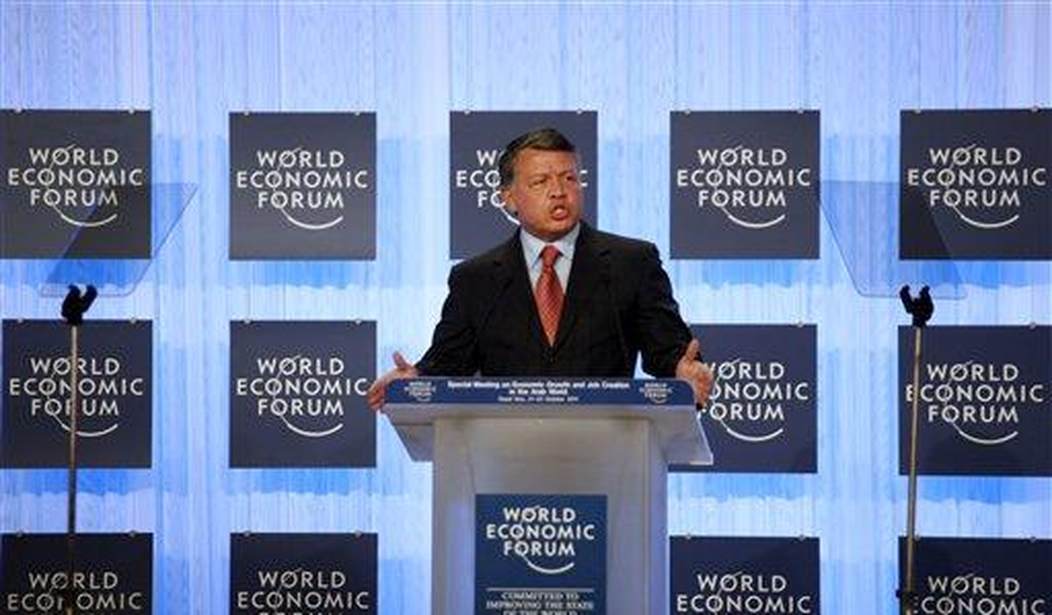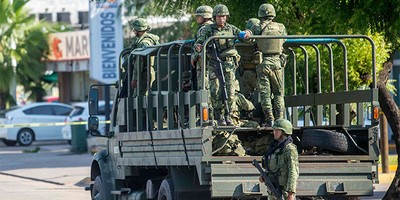I was disappointed to read of Jordanian King Abdullah II supposedly warning Israel not to cross “red lines” on Jerusalem during a Christmastime interview on CNN. Curious as to the nature of King Abdullah’s warning, I decided to watch the interview rather than just comment based on the politicized reports, where the headlines look for click-bait.
By way of full disclosure, I have nothing against King Abdullah. I think he’s quite a rational, stable, and important leader, for Jordan and for Israel. A close alliance between our countries is important.
Interestingly, Abdullah II’s great grandfather, Abdullah I, moved to the region 100 years ago after being appointed Emir of Trans-Jordan. He and his brother were rewarded with the territory of what’s today Jordan and Iraq for their loyalty to Britain. As Hashemites, they were moved from their native Mecca where the Saudi dynasty took control of the Arabian peninsula, to these new made-up entities. It was not considered an upgrade at the time, but they took what they could get. This was around the same time my grandparents came home to Israel ending their and their descendants (my family’s) diaspora.
Regarding family, I have a lovely photo of the King’s father, King Hussein, and my father in the early 1990s, just before Israel and Jordan formalized a peace agreement. My father was overjoyed to meet the King, but also because peace was coming to our countries. I’d very much like to meet King Abdullah for a host of reasons as my father met his father, though I must take exception with what he said.
Indeed, King Abdullah did issue warnings. He cautioned against Jerusalem being “used by extremists on all sides,” an important comment placing him in the middle. But his criticism of Israel was unique, “If we continue to use Jerusalem as a soapbox for politics,” he said, “things can get out of control.” Jerusalem is a “tinderbox that if it flashes, we won’t be able to walk away from (in the near future).”
Recommended
King Abdullah underscored how he wants to be perceived as a centrist, engendering sympathy by “living between Iraq and a hard place.” Yet, he warned from his own soapbox that “if people want to get into a conflict with us, we are quite prepared. I like to…look at the glass half full, but we have red lines.” While he was not threatening a third intifada, he did toss that in as a possible consequence of crossing the red lines.
The “people” he was referring to were Israelis, and the red lines were related to Israel’s presence in and control of parts of Jerusalem, specifically those in which he sees himself as the “custodian.” The Jordan River that separates our countries is often brown and murky from dirt. So too, King Abdullah’s words were murky. He repeated a baseless claim he’s made before, that as the Moslem Hashemite leader, he’s custodian of Christian and Moslem holy sites. In fact, he’s not. Jordan’s custodianship only applies to Islamic sites.
King Abdullah spoke of the shrinking number of Christians in the region, to note that the number of Christians is dropping under “pressure.” He didn’t say it outright, but the pressure to which he was referring is supposedly from Israel. But that too is false.
While indeed the situation of Christians in the region is dire, around the same time as King Abdullah’s CNN interview, Israel released demographics showing a two percent increase in the Christian population in Israel. That’s the only place in the region where the number of Christians is actually growing, at least that we know of because people converting to Christianity in the Arab/Moslem world are threatened and therefore speculated about but not widely reported on. In fact, the actual pressure on Christians comes from the wider Islamic society in which they live.
But if the King is concerned about the well-being of Christians in the region, he should start in Jordan itself. Why, when I met a Christian woman visiting Jerusalem recently, would she not be photographed with me, or even in Jerusalem for fear of her and her ministry in Jordan being threatened? The same happened with a Christian Palestinian Arab from Bethlehem with whom I had the opportunity to do business recently. When I suggested taking a picture, he stiffened, and he told me that could be dangerous for him in the Palestinian Authority.
One of the most “remarkable” comments King Abdullah made was in reference to Islam’s reverence of Jesus as messiah. Not only is that not exactly the truth, but it’s such a stretch it’d be surprising if the King didn’t have to walk that back for fear of being branded a heretic. That could be very dangerous for him and his kingdom where he constantly has to underscore his legitimacy as a Hashemite leader of a country that’s predominantly Palestinian Arabs. Fortunately, a public secret in the relationship between Israel and Jordan is Israel’s intelligence (and possible military) cooperation that helps keep the Hashemites on the throne.
Sitting on the east bank of the Jordan River, the King said that this was the third holiest site in Christianity (where Jesus was baptized). I asked many Christian friends if this was true, and if so what the first and second most holy Christian sites were. Without exception, all said that a ranking of such sites is disingenuous, and if it were legitimate, there are other sites that would be in contention for third place, fourth, fifth, and even sixth, ahead of the King’s claimed third place. Then again, with Islam’s third holiest site being in Jerusalem but never once mentioned in the Koran, perhaps his use of the term is deliberately vague.
Others suggested that he was just pandering to gain sympathy, and try to be perceived as the savior (pun intended), of Christians in the Middle East. His saccharine words “we are committed to defending the rights, the precious heritage, and historic identity of Christians of our region,” was so sweet I wanted to gag.
Nevertheless, the King’s warning about protecting the “status quo” in Jerusalem, undermines the rights of Jews and Christians who, by law, are denied the right to pray on the Temple Mount where Jordan has actual custodianship. Denying our right to pray at what’s arguably the most holy place in Jerusalem must be one of his red lines.
Despite his claims to protect Christians and Christian sites, I was left with the feeling that with friends like these, we don’t need another Judas.

























Join the conversation as a VIP Member